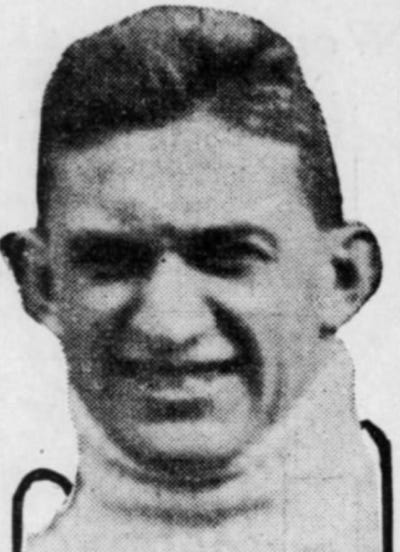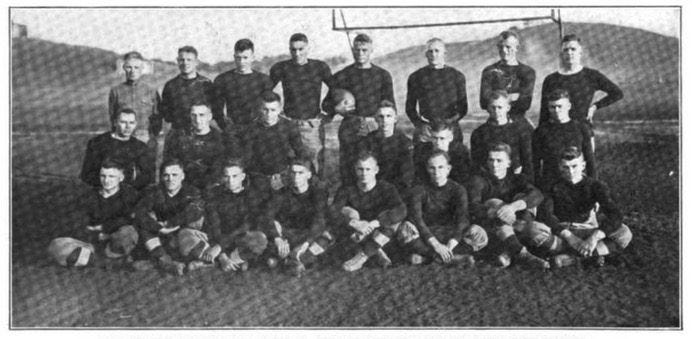June 25, 1920: A Deadly Crash
Every man that enlisted in the Marines during WWI knew that doing so put their lives at risk. Frederick T. Molthen was one of two Mare Island Marine football players who survived the war, but not the peace.
Fred "Dutch" Molthen grew up in Montana and was a multi-sport star at Butte High School, starring at fullback on their Montana and inter-mountain states championship football team. He played basketball as well, but earned his greatest acclaim during his senior track season. Molthen won the Montana 440, 880, and mile championships before traveling to Chicago to participate in the nation's largest interscholastic meet. Molthen won the mile championship at the meet and returned home as the effective national high school champion miler.
Molthen entered the University of Montana in September 1916 and became an immediate starter at fullback. The spring of Molthen's freshman year saw the U.S. enter WWI, so Molthen enlisted in the Marines and was sent to Mare Island for training, arriving in early June.
When the Marines formed a football team to play West Coast college and military training camp teams, Molthen joined up and was the starting fullback for five of the first six games of the season. His college teammate, Lawson Sanderson, replaced Molthen at fullback for the regular-season finale at USC and in the 1918 Rose Bowl, where Mare Island played the Army's Camp Lewis team.
Like his teammates, Molthen anticipated that he might be among those shipping to France as a replacement; instead, he qualified for pilot training. That took him to ground school at MIT in Boston in July 1918 and then to Miami for flight training, which he completed in January 1919, too late to go to Europe to see action during the war. Although he was commissioned a Lieutenant after completing pilot training, he moved to Quantico and completed officer training in late 1919. Molthen moved to Parris Island where he returned to duty as a pilot and gained additional training.
As a relatively new pilot, Molthen would have taken every opportunity to log flying hours, including ferrying other officers to bases in the Southeast. On June 25, 1920, Molthen prepared a modified DH-4 he was to pilot with two other Marine officers aboard for a flight to Savannah, Georgia. They took off uneventfully and rose to 500 feet, at which point the plane caught fire. Molthen maintained control of the aircraft and had descended to 100 feet when the DH-4 burst into flames and crashed, killing all three men.
With his death, Molthen became the second member of the teams of the 1918 Rose Bowl to be killed in service to his country. Frank Gard of the Camp Lewis team preceded Molthen in death when he was killed in action in France during the Meuse-Argonne Offensive in September 1918.
Click here for options on how to support this site beyond a free subscription.



